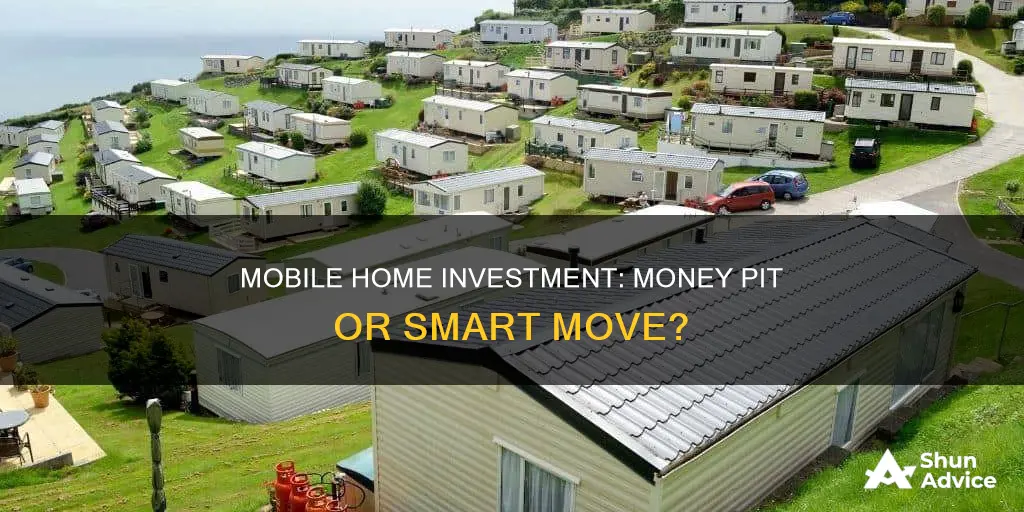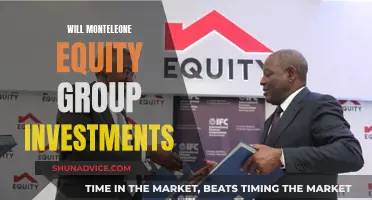
Mobile homes are an increasingly popular alternative to traditional housing, but are they a good investment? Mobile homes are generally more affordable than traditional houses, but they also come with some financial disadvantages. While they can be a good option for those looking for a place to live, they may not be the best choice for those looking to invest in real estate.
One of the main disadvantages of investing in a mobile home is that they tend to depreciate in value over time. This is because they are perceived as less desirable than traditional homes and can be difficult to resell. Additionally, mobile homes are often subject to higher interest rates and shorter repayment terms when it comes to financing. They are also more vulnerable to natural disasters due to their lack of structural stability.
On the other hand, mobile homes offer some advantages such as lower maintenance costs and location flexibility. They can also provide stable demand due to their affordability. However, the challenges of investing in mobile homes may outweigh the benefits for some investors.
What You'll Learn

Mobile homes depreciate in value over time
Mobile homes are often considered a poor investment because they depreciate in value over time. This is due to several factors, including the age of the home, its condition, location, and market conditions.
Firstly, the age of a mobile home is a significant factor in its value. Older mobile homes, particularly those built before 1976, are likely to be valued lower than newer ones due to safety and quality standards introduced in that year by the U.S. Department of Housing and Urban Development (HUD).
Secondly, the condition of a mobile home can impact its value. Regular maintenance, fixture upgrades, up-to-date plumbing, and foundation reinforcement can help maintain or even increase the value of a mobile home. However, natural disasters such as hurricanes, tornadoes, flooding, and fires can also decrease a mobile home's value and lifespan.
Thirdly, location plays a crucial role in the value of a mobile home. Mobile homes situated near offices, shopping centers, hospitals, restaurants, and schools tend to have higher values. Additionally, if the mobile home is affixed to a permanent foundation and considered real property, it is more likely to appreciate in value.
Finally, market conditions, such as demand and supply, can affect the value of a mobile home. When the demand for manufactured homes exceeds the supply, their value tends to increase. Conversely, when there is an oversupply with little demand, their value may decrease.
Despite these factors contributing to depreciation, some sources argue that mobile home values are rising faster than single-family home values. For example, according to lendingtree.com, the median value of mobile homes increased by 39% from 2014 to 2019, outpacing the 33% increase in single-family home values during the same period.
Navigating Retirement Investments: Taking Control of Your Financial Future
You may want to see also

They are difficult to resell
Mobile homes are difficult to resell because they are not truly "mobile". Once placed in a mobile home park and connected to utilities, they are not easy to move. Relocating a mobile home can cost thousands of dollars, which makes it challenging to find a buyer who would be willing to commit to staying in the same mobile home park.
If you don't own the land that your mobile home is on, the selling process becomes more complex. In this case, your home is considered "chattel" or personal property, and you can't sell it without involving the mobile home park owner. The park owner has the right to approve or veto potential buyers, and they may also have occupancy rules and regulations that the new owner must abide by.
Even if you own the land that your mobile home sits on, you may still face challenges in reselling. Mobile homes tend to drop in value over time, especially if they are in a mobile home park. This is because they are perceived as less desirable than traditional homes and are subject to depreciation as they age and become harder to move.
Additionally, financing options for mobile homes are more limited compared to traditional homes. Buyers may struggle to obtain a traditional mortgage for a mobile home, especially if it is on leased land. While some lenders offer loans for mobile homes, the interest rates tend to be higher, and the repayment terms are shorter than those for a conventional 30-year mortgage.
Overall, the combination of limited financing options, depreciation, and the challenges associated with relocating mobile homes contributes to the difficulty in reselling them.
The Workforce Investment Act: Funding Education for America's Future
You may want to see also

They come with more maintenance responsibilities
Unlike apartments, mobile homes come with more maintenance responsibilities. You will be responsible for maintaining and repairing your mobile home. This means that if the dishwasher breaks or there is a leak in the roof, you will have to cover any related expenses. You will also need to insure the mobile home at your expense.
One of the most important parts of your mobile home that requires regular maintenance is the roof. If you don't put in the time and effort to maintain it, you could face serious expenses down the line. For example, if you live near trees, your roof will be barraged with leaves, buds, and twigs, which can cause grime and debris to build up in the seams along your rooftop, joints, and edges. If there is enough build-up, it can separate the seams and lead to leaking, extensive water damage, and mould.
To keep your roof healthy and long-lasting, it is recommended that you regularly clean off any debris with a long-handled brush. About twice a year (or more, depending on the climate and conditions), you will need to complete a more thorough cleaning. If you are steady enough to do the job yourself, take the necessary precautions and don't attempt anything that is physically too difficult or dangerous. If you aren't sure of yourself, stop and hire a professional.
- Safety check: Set up your ladder correctly. The ladder should be on a flat, level surface and secured in a safe position.
- Clean the roof: Use a telescopic scrub brush to clean the entire roof, moving the ladder as needed.
- Patch up any holes: Look for any holes and, if necessary, cover them with roofing cement or sheet metal and silicon caulking.
- Coat the roof: Apply a roof coating to cover up any holes and prevent further rusting.
- Paint the roof: Painting your metal roof will keep away rust and make it look nice.
In addition to roof maintenance, you will also need to perform regular maintenance on your gutters. Clean out your gutters regularly and inspect them for leaks or holes. They should be slanted so that water runs away from your mobile home.
Another important aspect of mobile home maintenance is skirting ventilation. Skirting acts as an insulator, adds protection from pests, and improves curb appeal. It should be secure to keep animals out but have adequate venting to prevent humidity and mould. You can use the formula 1:150 to ensure you are giving your home the proper skirting ventilation based on your square footage.
Finally, don't forget about routine maintenance and inspections. Check your mobile home every year to ensure it is level, as mobile homes can settle over time. If it is not properly levelled, several issues can arise, such as doors and windows not shutting properly, cracks in walls, and leaks.
Investing in Movies: How to Get Started
You may want to see also

They are vulnerable to natural disasters
Mobile homes are particularly vulnerable to natural disasters. They are structurally weaker than traditional homes, and mobile home residents tend to be low-income. This means that when a disaster strikes, it can be difficult for them to get the money they need to recover. For example, in Lyons, Colorado, devastating floods destroyed about 50 mobile homes, and a decade later, many mobile homeowners were still struggling to recover.
Mobile homes are also more likely to be located in areas that are prone to natural disasters. One in seven mobile homes nationwide is built in a flood-prone area, compared to one in ten traditional homes. This is partly because mobile home parks were often built on less expensive land that is more susceptible to hazards such as floods and wildfires. As a result, mobile home residents have higher exposure to natural hazards such as wind and tornadoes, hurricanes, extreme heat, and wildfires, in addition to floods.
The complicated ownership arrangements of mobile homes can also hinder disaster recovery. In many cases, mobile home residents own their homes but rent the land underneath, creating a murky legal situation where they are simultaneously renters and owners. This divided tenure means that mobile homes are typically considered personal property rather than real estate, which affects how they can be insured or used as collateral for post-disaster loans. Mobile home owners are often not eligible for post-disaster recovery programs aimed at homeowners, and disaster recovery programs rarely account for the unique social and regulatory barriers facing mobile home residents. As a result, mobile home residents are more likely to face barriers in accessing federal and state assistance and are more likely to be permanently displaced after a disaster.
The vulnerability of mobile homes to natural disasters is further compounded by the social vulnerabilities of their residents. When compared to other housing types, mobile home residents have higher rates of poverty, are more likely to have a disability or mobility issues, are more likely to be seniors or families with small children, and are more likely to be immigrants. These characteristics have been shown to increase exposure and vulnerability to disasters.
Overall, the structural weaknesses of mobile homes, their location in hazard-prone areas, and the social and regulatory vulnerabilities of their residents make them particularly vulnerable to natural disasters.
Pay Off Your Second Mortgage or Invest: Which Comes First?
You may want to see also

They may not qualify for traditional financing
Mobile homes, also known as manufactured homes, are a more cost-effective alternative to traditional homes. However, they may not qualify for traditional financing due to several reasons. Firstly, mobile homes are typically cheaper than traditional homes, and their value depreciates over time. As a result, most traditional mortgage lenders do not offer financing options for these types of homes. Lenders view mobile homes as a risky investment due to their lower cost and depreciation, making it challenging for buyers to obtain conventional mortgages.
Another reason why mobile homes may not qualify for traditional financing is that they are often placed in mobile home parks or on leased land. Lenders consider the stability of the asset when providing loans, and renting a plot for a mobile home can limit the loan options available. Lenders perceive owning the land where the mobile home will be placed as a more stable investment. Therefore, buyers who plan to rent a plot for their mobile home may have fewer loan options compared to those who intend to purchase the land.
Additionally, mobile homes may not meet the eligibility criteria set by lenders for traditional financing. Lenders have specific lending criteria based on the type and value of the home. For example, older mobile homes may not qualify for financing at all due to their age and potential lack of regulated construction standards. Furthermore, mobile homes may not meet the minimum square footage requirements or the foundation and land ownership criteria set by lenders. These factors can further limit the financing options available to buyers.
Lastly, mobile homes are often classified as personal property instead of real property. "Real property" includes land and structures that cannot be easily removed, such as a house or an in-ground pool. On the other hand, "personal property" refers to movable items like cars or boats. Mobile homes, especially those on leased land or with axles and wheels, are typically classified as personal property. This classification can impact the financing options available, as some lenders specifically offer loans for real property.
Uncorking the Secrets: Navigating the World of Wine as an Investment
You may want to see also
Frequently asked questions
Mobile homes are considered a bad investment because they depreciate in value over time. They are also difficult to resell and are susceptible to damage or destruction during natural disasters.
Mobile homes offer advantages such as affordability, quick returns, lower maintenance costs, positive cash flow, location flexibility, and regulatory simplicity. They can be a good option for those looking for a place to live, as they are often more affordable than traditional houses.
When deciding whether to invest in a mobile home, it is essential to consider factors such as current rent, whether to buy a new or used mobile home, financing options, the cost of renting a mobile home space, and long-term financial goals. It is also important to be aware of the challenges associated with mobile home investments, including depreciation, location dependency, park regulations, resale challenges, financing difficulties, and vulnerability to natural disasters.







